The Yokefellow Prison Ministry
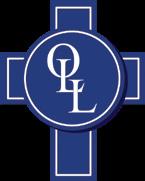
Sharing His Love and Fostering Authentic Relationships
Yokefellow Prison Ministry is a true spiritual work of mercy inspired by Matthew 25:37-39 — “Lord, when did we see you hungry and feed you, or thirsty and give you drink? When did we see you a stranger and welcome you, or naked and clothe you? When did we see you ill or in prison, and visit you?”
The ministry is a non-denominational Christian group that shares the love of Christ with those in prison. Its mission is to inspire “inmates and formerly incarcerated persons, yoked in personal relationships with Christian community volunteers, to examine their lives, experience the forgiveness, healing, and power of God’s love, and develop new disciplines for personal responsibility and contribution to family and community.”
Carlton Gooding is a veteran volunteer and board member for Yokefellow Prison Ministry. He has witnessed the power of God’s love in the life of hundreds of inmates and understands the positive impact that this ministry offers.

“We go to create an environment of safety, caring, and love,” Carlton says. “We are a ministry of reconciliation and bring people closer to God.
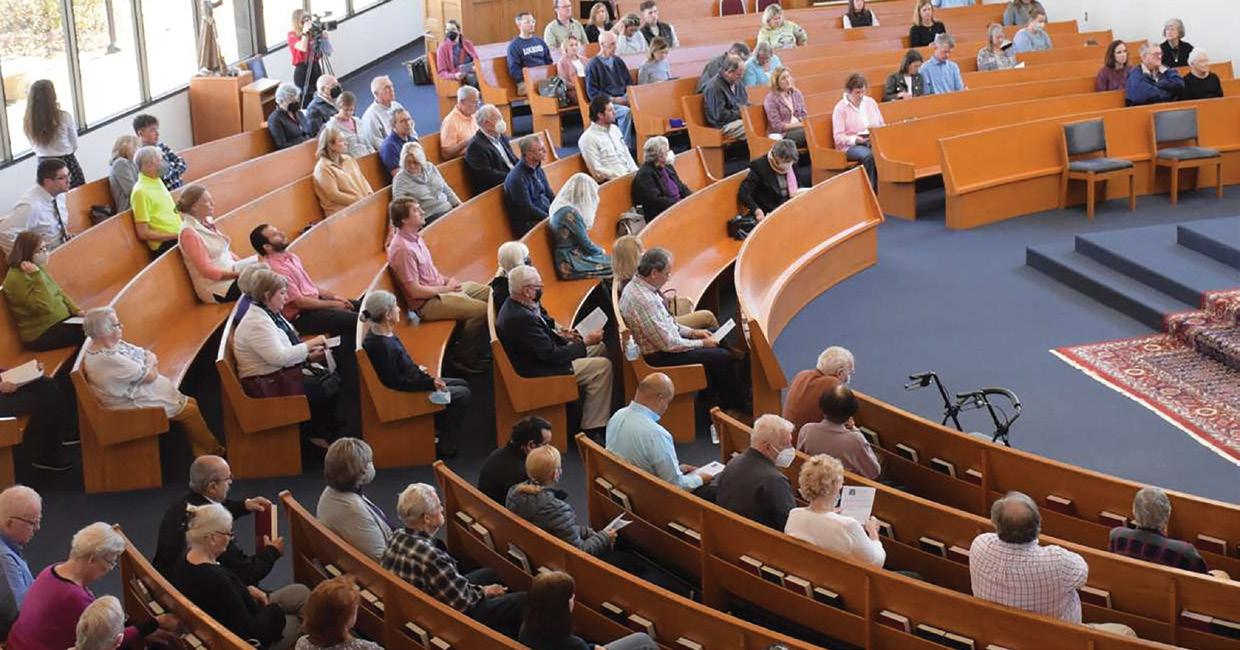
There are many ways for volunteers to impact the lives of others.
The Yokefellow Prison Ministry
In prison, you can’t trust anyone. The name of the game is to survive. The prisoners need an outlet to share who they are and what they are struggling with. As volunteers, our job is to become active listeners who love the inmates by desiring to get to know them and listen to their stories.”
Unlike other Christian prison ministries, Yokefellow does not have an agenda. They do not perform church services or lead Bible studies. Instead, Yokefellow volunteers are trained to create authentic relationships with the inmates that are based on taking a vested interest in their lives.
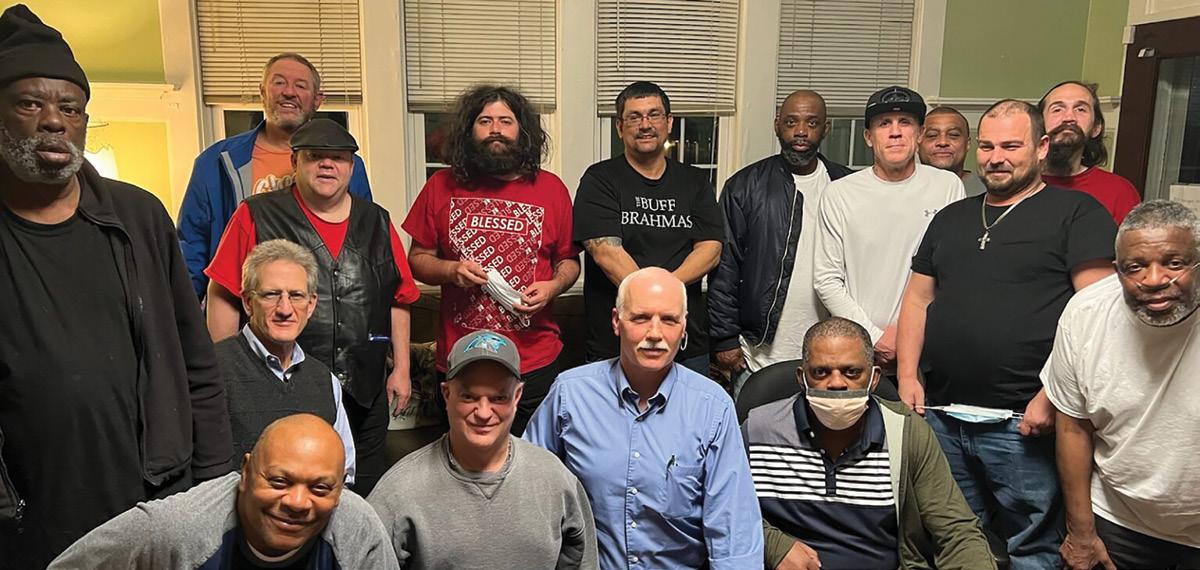
The prison meetings consist of volunteers leading organic small-group discussions with a few prisoners at a time. The conversations are focused on the lives, struggles, hopes, and dreams of the prisoners.
“We are there to love them where they are at,” Carlton says. “Every meeting is an opportunity to plant seeds of God’s love.
“We go to the prisons to bond with the inmates,” he adds. “The most important thing is for the inmates to know that they can open their hearts to us. They need to
continued from front cover
be able to identify that the only reason we are there is for them individually.”
Then, as Carlton puts it, “the Holy Spirit does the rest.”
“It is the supernatural power of the almighty God that then transforms the lives of the inmates,” he says. “It is also true that the inmates become a blessing to you.”
Yokefellow Prison Ministry is built on the philosophy that God works powerfully when people show each other love.

Currently, the ministry has over 400 volunteers who visit 37 prisons, which is 67 percent of the prisons in North Carolina. Yokefellow meetings are done in person by visiting the prisons and online through virtual meetings over Zoom. In addition, the ministry also ministers to those who are in residential re-entry homes and are acclimating to life outside of prison. There are many ways for volunteers to impact the lives of others.
Yokefellow is always welcoming those who can serve and the commitment is flexible. Meetings occur once a week and volunteers are encouraged to make as many as they can, but ultimately it is up to the volunteer.
A

Remember to Keep the Faith this Summer
Dear Parishioners,
As we enter the month of June and kick off our summer, I want to take a moment to reflect on the importance of stewardship in our daily lives as Catholics. Stewardship is a way of life that calls us to recognize that everything we have is a gift from God, and that we are called to use these gifts for the good of others and the building up of God’s kingdom. Here are a few ways in which we can live out stewardship in the month of June:

• Practice gratitude: Take time each day to thank God for the blessings in your life, both big and small. A grateful heart is essential to living a life of stewardship, as it helps us to recognize the gifts that God has given us and to use them for the good of others.
• Give generously: Whether it’s donating to a local charity, volunteering at a soup kitchen, or simply offering a kind word to a neighbor, there are countless ways to give of ourselves to others. Consider making a financial donation to our parish or to a local charity that is doing good work in our community.
• Pray for others: Stewardship is not just about giving of our material resources, but also about giving of our time and talent. Take time each day to pray for the needs of others, whether it’s for the sick, the poor, or those who are struggling in their faith.
• Share your talents: We are all blessed with unique gifts and talents that we can use to serve others. Consider volunteering to teach a religious education class, joining the choir, or using your professional skills to help those in need.
• Be a good steward of the environment: God has entrusted us with the care of His creation, and it is our responsibility to be good stewards of the environment. Consider ways in which you can reduce your carbon footprint, recycle more, or conserve resources.
As we continue to navigate the challenges of our world, let us remember that we are called to be faithful stewards of the gifts and talents that God has given us. By living out stewardship in our daily lives, we can make a difference in the world and build up the kingdom of God.
May God bless you and your families abundantly this month, this summer, and always.
In Christ, Fr. Patrick Keane Pastor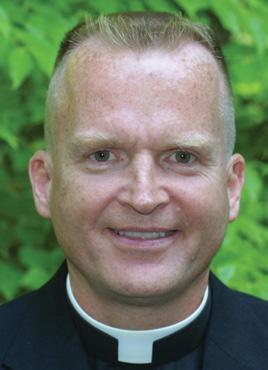

Marriage Prep:Building a Life
Preparing for a wedding and preparing for marriage are two very different things. Although both are important and exciting, the details of a wedding can overshadow the important work of preparing for the sacrament. The preparation that happens in the months leading up to the wedding is invaluable for a holy and happy marriage.
Linda Champagne may be new to the role of Marriage Coordinator, but her personal experience with married life helps her to guide new couples through their preparation. Linda’s role brings together all the different aspects of Marriage Prep, from meeting with the priest or deacon to the workshop with the diocese, to mentor couples, and beyond.
“The goal of Marriage Prep is to realize that it’s not just a sacrament we do on our wedding day, but a sacrament we will live out for the rest of our married life,” Linda says.

Marriage Prep requires about six months leading up to the wedding. During this time, couples will meet with either Fr. Pat or Deacon Byron. Linda sets the couple up to take an assessment called Fully Engaged, which helps couples to identify areas of strength and areas where they need more communication.
Linda then connects them with a mentor couple, with whom they’ll meet three or four times. These meetings are a great time to ask questions about things that come up in the Fully Engaged assessment or about Natural Family Planning.
At the diocesan level, couples will be asked to attend a one-day workshop. Rebekah Tolson, Coordinator of Married Life at the Diocese of Raleigh, along with presenters from various parishes, covers
continued on page 5

Life in the Faith Together

a variety of topics during the workshop. The workshop offers the couple plenty of time to discuss the material they are learning and look at how it applies to their own relationship and future.
“I hope couples come away with a greater sense of what their marriage could look like,” Rebekah says. “We want them to see that their marriage is an icon of God’s love when others can see marriage lived out in a trinitarian way.”
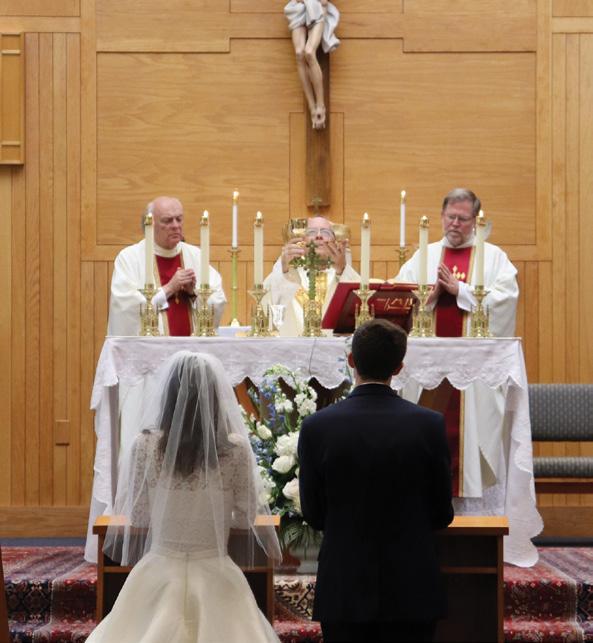

In her six months as coordinator leading up to wedding season, Linda has found plenty of reward in the feedback she hears from couples.
“One bride was just so excited about how the
Church has walked with her and helped her build community,” Linda says. “Her mentor couple was actually down the street from her, then they saw them at church and went out for brunch together. She said that she thought it was just about the Sacrament of Marriage, but her faith has deepened and there’s so much to learn.”
The natural support and community are just some of the long-term impacts of taking Marriage Prep seriously. These short months, although a whirlwind, will lay the foundation for strong marriages, families, and ultimately, a joyful and faithful Church.

Stewardship Giving During the Summer Season
“We’ve stopped delivery of the newspaper and mail. We’ve taken the dog to the kennel. The iron is unplugged, and the stove is turned off. Is there anything else we need to do before we leave on vacation?”
Aren’t you forgetting something? Did you remember to write a check to your parish for the Sundays you’ll be gone?
“But I won’t be at Mass at home those Sundays. Can’t I skip those envelopes when I’m away? After all, I’ll put a dollar or two, or maybe even five, in the collection at the church where we visit. Isn’t that enough?”
Many Americans, whether we have school-age children at home or not, operate on an academic calendar. We assume our organizations operate September through May and then take it easy during June, July and August. And to some extent, many parish activities do function on such a schedule. Our parish may not hold Religious Education classes during the summer. Our choirs frequently take a break. Even many of the parish staff members take summer vacations! Can’t our giving take a vacation during the summer, too?
Even as we form the question in our mind, we know the answer. The prime reason for keeping up our pledge all summer long is that God doesn’t go on vacation. He continues to sustain us throughout the summer months. He persists in pouring out blessings on us, even during the hottest weather. He keeps on meeting us in His sacramental presence when we go to Mass wherever we travel. As God remains faithful
to us during the summer, we are called to be faithful in our commitments to Him and our parish family, even during our vacation time.
God’s steadfastness in giving to us is the primary reason for us to respond by being faithful in our stewardship toward Him. But there is also a practical reason why we need to keep up our pledges of time, talent and treasure throughout the summer — the Church needs our involvement year-round.

Even though some parish activities are reduced during the summer months, the parish’s expenses are not. After all, there are still Sunday Masses and weekday Masses, too. The parish staff members still need their salaries. And of course, we need to run the air conditioning in our church during the hot summer months. Despite the fact that some parish functions are suspended, other activities may take place, such as Vacation Bible School. And although the regular parish Religious Education program may be suspended, the summer expenses are often the highest, as textbooks and other supplies are bought for the upcoming school year. Our parish has to pay its bills on a yearround basis, just like your family.
Our parish plans a budget for the year, taking into account the commitments that you, the members, have made. If parishioners do not live out their financial commitments to the parish, the budget will not balance.
Our giving needs to be maintained throughout the summer, just as God maintains His generosity to us. Our stewardship is a response to God’s gifts. And God pours out His gifts and His grace upon us all year long.

Faith and Science: Can They Mix?
There have long been scientists who claimed that their work was “incompatible” with faith in God. But as our world has become increasingly polarized, more and more people seem to believe that there must be a disconnect between faith and reason. For many scientists — and secular scholars in other fields, as well — religion and academics are deemed mutually exclusive. If something cannot be proven empirically, they posit, it is foolhardy to stake one’s life on it. And yet, this is exactly what we as Catholic Christians do — every time we say the word “amen,” in fact, we are declaring that we believe Church teachings to be an absolute truth.
So is all this to say that the Church really is “anti-science,” as some of its detractors claim? Certainly not! In fact, most people — Catholics and non-Catholics alike would probably be very surprised to know just how many Catholic thinkers have played a major role in the development of modern scientific thought.

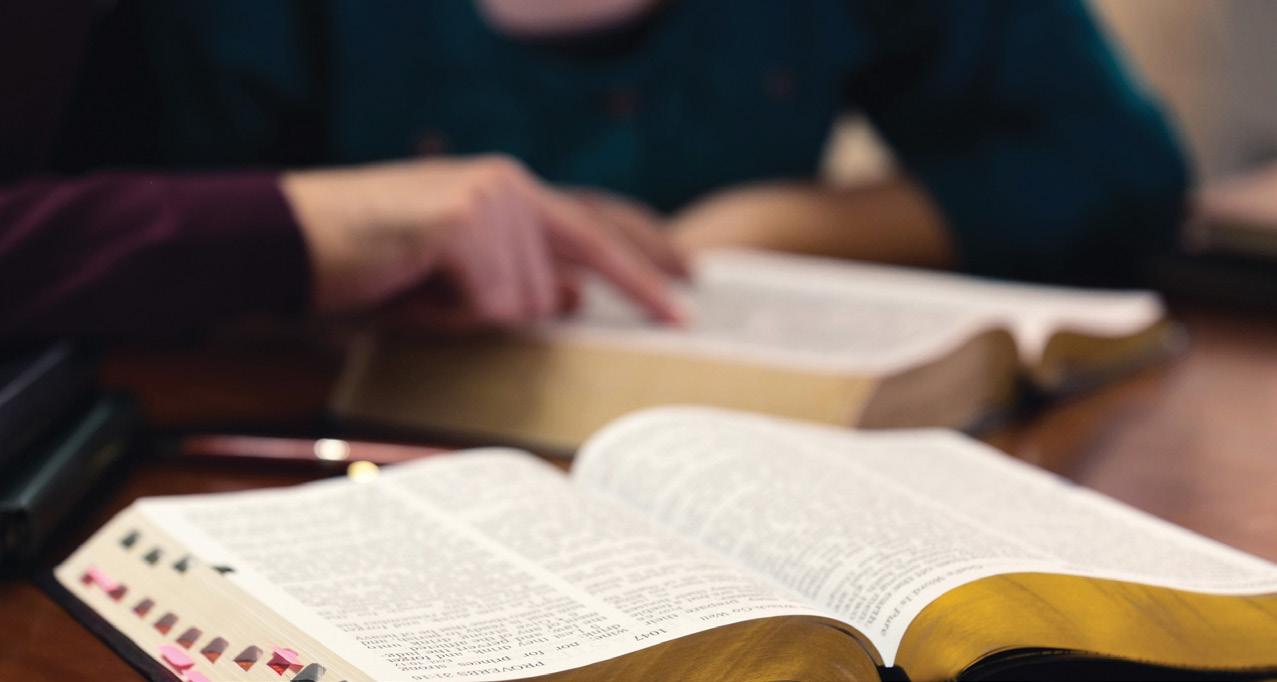
Most of us are familiar with some of the earliest scientific advances made by famous Catholic scholars like Copernicus, Galileo, Descartes, and Leonardo da Vinci. But fast-forward to the 19 th century — when countless innovations in modern science began kicking into high gear — and the contributions made by Catholic scientists are astounding! For example, the Mercalli scale used to measure earthquakes was developed by an Italian Catholic volcanologist, Giuseppe Mercalli, at the turn of the last century. You may also remember some of the laws of Mendelian inheritance from your high school biology class — Augustinian
friar and botanist Gregor Mendel first discovered these recessive and dominant “factors” (which would later come to be called genes) in the 1800s, becoming the founder of genetics.
Of course, these are just a few of the more widely known examples. Those who work in the specific fields of physics and cosmology have several priests to thank for the incredible advances made in this area of study over the last century. A professor of astronomy and physics at the Catholic University of Leuven, Fr. Georges Lemaître was the first scientist to propose the Big Bang theory — which he referred to as the “primeval atom” or the “Cosmic Egg” — and the theory of the expansion of the universe. Fr. Lemaître’s brilliant and meticulous research won over even the most skeptical scientists in his field — reportedly, upon hearing Fr. Lemaître present his theories at a conference in California, Albert Einstein declared, “This is the most beautiful and satisfactory explanation of creation to which I have ever listened.”
For Fr. Lemaître, who served as president of the Pontifical Academy of Sciences from 1960 until his death in 1966, balancing the worlds of priesthood and cosmology research was not always easy. Sometimes, Catholic believers misunderstood his quest to discover the origin of the universe as a desire to put limits on God. On the other side, secular scientists questioned his ability to formulate theories of the universe objectively, suspecting that he was seeking to manipulate his scientific finds to fit them within Church teaching. In reality, Fr. Lemaître always
continued on back cover
Faith and Science
continued from page 7
advocated for a strict separation between science and faith, claiming that the Bible was not intended to be read as a science textbook and that “God could not be reduced to a scientific hypothesis.” For this Catholic scientist, although faith and science may have each answered separate questions, they were certainly not incompatible.
In contrast to Lemaître’s careful separation of questions of science and faith, another famous physicist priest takes the opposite approach. Fr. Michal Heller, professor of philosophy at the Pontifical University of John Paul II in Kraków, Poland, and member of the Vatican Observatory staff, seeks to bring together the fields of science, philosophy, and theology. In an interview with The New York Times upon his receipt of the acclaimed Templeton Prize for science and religion in 2008, Heller explained: “Science gives
us knowledge, and religion gives us meaning. Both are prerequisites of the decent existence.”

Another scientist priest of the past century successfully reconciled science and faith in his life’s work. Fr. Stanley Jaki (1924-2009) is perhaps best known for his claim that modern science and cosmology were only made possible through the Christian understanding of creation that took root in medieval Europe. Fr. Jaki believed that faith and science must work together, and he warned against the tendency of modern society to seek omniscience through scientific study, thus letting science take the place of God.
Today, scientists like astronomer Fr. George Coyne, former director of the Vatican Observatory and current professor at Le Moyne College in New York, continue to make significant contributions to the study of modern science worldwide.





